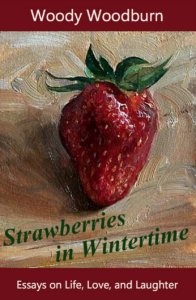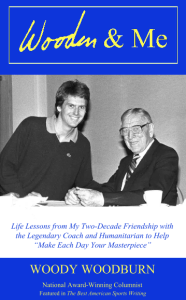 “It’s better, I think, when we all stay together,” said Nicolette, a green-eyed, olive-skinned, sunny-voiced, sandy-blonde, thirtyish-year-old Greece native who served as tour guide for our group of two dozen sightseers at the ancient ruins of Olympia.
“It’s better, I think, when we all stay together,” said Nicolette, a green-eyed, olive-skinned, sunny-voiced, sandy-blonde, thirtyish-year-old Greece native who served as tour guide for our group of two dozen sightseers at the ancient ruins of Olympia.
It seems to me this is wise advice for life in general. As an African proverb puts it: “If you want to go fast, go alone; if you want to go far, go together.”
Our bus driver, however, wanted to go both fast and far and thus expressed impatient displeasure with the dawdling driver ahead of us by blaring the horn with one hand while making a gesture of anger with the other. With his mouth, he barked briefly in his native tongue.
“We Greeks, we do not respect speed limits and traffic signs,” Nicolette sang out with a laugh, perhaps as a hint to our coachman to not tailgate and certainly not try to pass on this winding two-lane rural road.
Champions at the ancient Olympics received olive wreaths instead of gold medals, Nicolette had explained earlier at the Games’ historic site. Now, on the 30-mile drive back to port in Katakolon, she talked about the golden value of olives.
“We call olives ‘green gold’ because 600,000 families make their livings from growing and selling olives and olive oil,” she said, further noting that almost every family with a backyard has at least one olive tree, and usually three or four – or even 30, as with her childhood home – to produce olive oil for their own use.
“It is not common for people to sell their private olive oil,” Nicolette continued. “If you have more than your family needs, then you give it to friends and coworkers who do not have trees in their family.”
Winter, from early November to Christmas, is olive harvesting season. The “green gold” is always picked by hand because mechanical culling is believed to damage the trees and bring bad luck – and bad taste – to the fruit.
“Picking” is not quite accurate. Men climb the trees and shake the ripe olives loose while women and teens accomplish this by banging the lower limbs with clubs. The fallen gems are then gathered from a tarp below. One tree produces 80 pounds of the stone fruit, give or take, which yields roughly six quarts of liquid gold.
“Olive oil is our culture. My father even makes natural soap from the olive mash – it is so healthy for the skin,” Nicolette said, her flawless fashion-ad complexion serving as evidence of the soap’s beautifying powers.
A few miles later, at a four-way stop, a car to our right came to a full halt and waited even though it had the right of way. This drew the ire of our bus driver.
Ho-n-n-n-n-k! – longer this time.
Hand gesture(!!) – made more wildly.
Two syllables!!! – even louder than before.
“Greeks lack patience,” Nicolette said, again playfully, trying to calm our driver and perhaps rescue her monetary tips. “We are always in a hurry, especially when driving.”
Further proving her point, our bus lurched through the intersection as the other car, its driver obviously not Greek considering his or her patience, remained at a standstill.
“What did our driver say?” I asked Nicolette. Ever the good sport, she repeated it, translated into English, then coached me in pronouncing it correctly.
Obviously, Nicolette’s gratuity from me was not only rescued, but increased twofold. After all, she taught me all about Greece’s “green gold” and also a Greek blue word.
Onward next week to Naples, Italy, and the ancient ruins of Pompeii…
* * *
Essay copyrights Woody Woodburn
Woody writes a weekly column for The Ventura County Star and can be contacted at WoodyWriter@gmail.com. Follow him on Twitter and Instagram at @woodywoodburn. His SIGNED books are available at www.WoodyWoodburn.com.

 Personalized Signed copies of WOODEN & ME: Life Lessons from My Two-Decade Friendship with the Legendary Coach and Humanitarian to Help “Make Each Day Your Masterpiece” and “Strawberries in Wintertime: Essays on Life, Love, and Laughter” are available at WoodyWoodburn.com
Personalized Signed copies of WOODEN & ME: Life Lessons from My Two-Decade Friendship with the Legendary Coach and Humanitarian to Help “Make Each Day Your Masterpiece” and “Strawberries in Wintertime: Essays on Life, Love, and Laughter” are available at WoodyWoodburn.com
